Search
Remove Ads
Advertisement
Summary 
Loading AI-generated summary based on World History Encyclopedia articles ...
Search Results
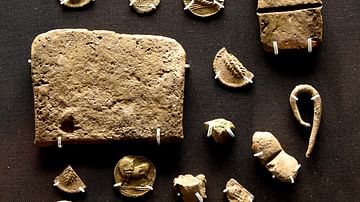
Article
Treasure Hoards in Ancient Literature
Aristophanes wrote in the 5th century BCE about coin hoards in Athens. He joked about the common saying, "No one knows but the birds where I hid my money," which led buffoons in his play to follow birds around with a shovel, hoping to excavate...

Definition
Gandhara Civilization
The Gandhara Civilization existed in what is now Northern Pakistan and Afghanistan from the middle of the 1st millennium BCE to the beginning of the 2nd millennium CE. Although multiple major powers ruled over this area during that time...
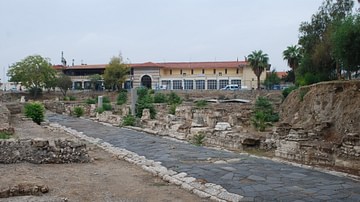
Definition
Tarsus
Tarsus was a city in ancient Cilicia located in the modern-day province of Mersin, Turkey. It is one of the oldest continually inhabited urban centers in the world, dating back to the Neolithic Period. It was built close by the Cydnus River...
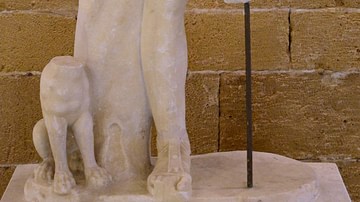
Definition
Britomartis
Britomartis, also known as Diktynna (Dictynna), was the Cretan goddess of hunting and fishing nets in Greek mythology. Although referred to as a nymph and worshipped locally, she had at least two significant and active shrines, one in Crete...
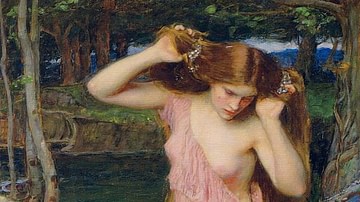
Definition
Lamia
Lamia is a female or a hermaphroditic demon found in Greek mythology who devoured children and seduced men. She appears in literature as early as the 6th century BCE and is said to be fearsome to look upon with an ugly face, the upper body...
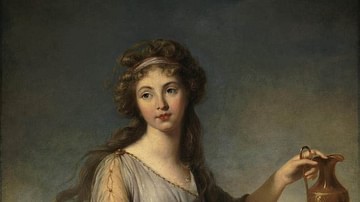
Definition
Hebe
Hebe (meaning "youth" or "bloom of youth") is the goddess and personification of eternal youth in Greek mythology. She is the daughter of Zeus and Hera and the wife of the Greek hero Hercules. Hebe serves as the cupbearer for the gods and...
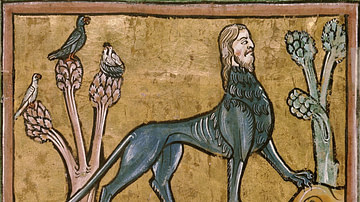
Definition
Manticore
The manticore, derived from the Early Middle Persian merthykhuwar or martiora, meaning "man-eater" (also known as a mantichora or a martichore), is a fearsome hybrid creature found in classical and medieval literature. It has the body of...

Definition
Horae
The Horae (Horai, sing. Hora) were the personification and goddesses of the seasons and the hours and, later on, were regarded as goddesses of order and justice in Greek mythology. They were the daughters of Zeus and the Titaness Themis and...

Definition
Caesarion
Ptolemy XV Caesar “Theos Philopator Philometor” (“the Father-loving Mother-loving God”) (c. 47-30 BCE), better known by his unofficial nickname Caesarion or “Little Caesar” in Greek, was the oldest son of Cleopatra VII (69-30 BCE) and was...
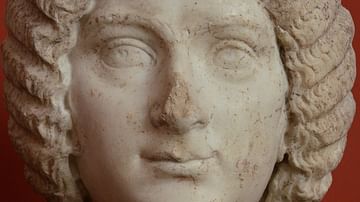
Definition
Julia Domna
Julia Domna (160-217 CE) was a Syrian-born Roman empress during the reign of her husband, Roman emperor Septimius Severus (r. April 193 - February 211 CE). She was also the mother of the emperors Geta (r. 209-211 CE) and Caracalla (r. 198-217...